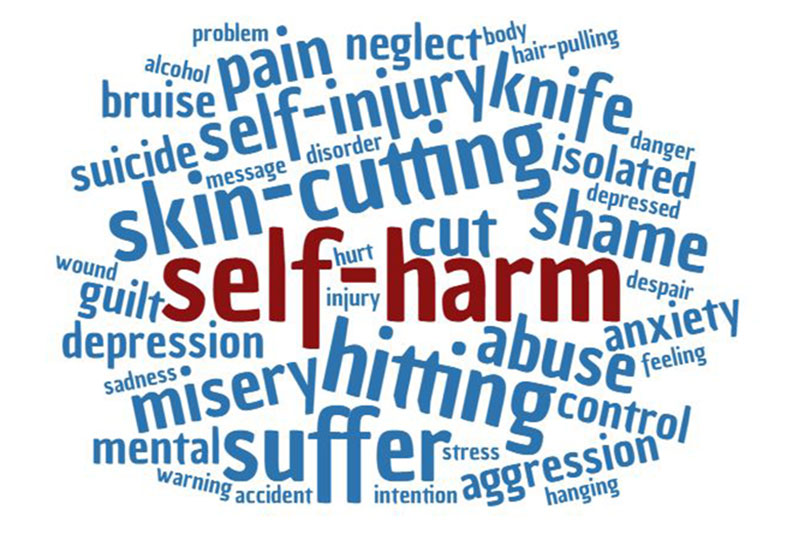
Learning to Peacefully Co-Exist with Anxiety
The Calli InstituteDo you feel as if situations and people around you are growing more and more anxious? You are not alone. According to the American Psychological Association’s Journal of Personality and Social Study, anxiety has increased dramatically since the 1950’s . It has increased so much so, that the average high school student’s anxiety is equal to that of the average psychiatric patient in the early 1950’s.
Today, anxiety disorders are the most prevalent mental health concern in the U.S., impacting over 40 million adults and 25% of children (ages 13-18) . According to that same study, while anxiety disorders are thought to be highly treatable, fewer than 40% of those suffering ever receive treatment. In children, untreated anxiety disorders are at higher risk to struggle in school, neglect important social experiences, and engage in substance abuse. In adults, untreated anxiety has been linked to depression, lack of healthy relationships, and chronic physical illness .
So why don’t people get help? For many years stigma prevented those with anxiety from seeking help. Today, individuals struggle to find the healthcare coverage, time, or transportation to attend counseling. Besides, a psychological wound is easy to ignore. We can put it in a nice box in our mind, and store it away to address when we get the chance or are otherwise forced to. At least, we like to pretend that’s true.
Guy Winch, Ph. D. and author of Emotional First Aid has one idea on how we can take control back from the anxiety epidemic; what if we tended to our psychological wounds with the same importance as physical wounds? What if we became more aware of how our brain reacts to loneliness and failure? What if we could break the cycle?
In Dr. Winch’s TedTalk, he argues that:
By taking action when you’re lonely, by changing your responses to failure, by protecting your self-esteem, by battling negative thinking, you won’t just heal your psychological wounds, you will build emotional resilience, you will thrive. A hundred years ago, people began practicing personal hygiene, and life expectancy rates rose by over 50 percent in just a matter of decades. I believe our quality of life could rise just as dramatically if we all began practicing emotional hygiene .
This approach may sound easy, or even logical. However, in reality, practicing emotional first aid is hard. To simplify things, Dr. Winch offers seven techniques for managing your emotional well-being that you can start practicing today:
1. Pay attention to emotional pain — recognize it when it happens and work to treat it before it feels all-encompassing.
2. Redirect your gut reaction when you fail.
3. Monitor and protect your self-esteem. When you feel like putting yourself down, take a moment to be compassionate to yourself.
4. When negative thoughts are taking over, disrupt them with positive distraction.
5. Find meaning in loss.
6. Don’t let excessive guilt linger.
7. Learn what treatments for emotional wounds work for you.
To hear more of Dr. Winch’s TedTalk, click here.
While anxiety may be inevitable, and sometimes even helpful, it can also leave people unnecessarily paralyzed. If practicing emotional first aid in your own life feels overwhelming, impossible, or otherwise leaves you feeling helpless, it may be time to reach out for help. Even if therapy is not the right fit for you, there are many resources you can access from the comfort of your own home. Know that you are not alone in your anxiety, and that there are people fighting to end the anxiety epidemic.
Resources:
1. Twenge Ph. D., J. M. (2000, December 14). Studies show normal children today report more anxiety than child psychiatric patients in the 1950’s. Retrieved September 06, 2017, from http://www.apa.org/news/press/releases/2000/12/anxiety.aspx
2. Leahy Ph. D. , R. L. (2008, April 30). How big a problem is anxiety? Retrieved September 06, 2017, from https://www.psychologytoday.com/blog/anxiety-files/200804/how-big-problem-is-anxiety
3. Facts & Statistics. (n.d.). Retrieved September 06, 2017, from Anxiety and Depression Association of America at: https://adaa.org/about-adaa/press-room/facts-statistics
4. Anxiety and Physical Illness. (2017, June 6). Retrieved September 6, 2017, from https://www.health.harvard.edu/staying-healthy/anxiety_and_physical_illness
5. Winch, G. (2015, February). Guy Winch, Ph. D.: Why we all need to practice emotional first aid. [Video file]. Retrieved from https://www.ted.com/talks/guy_winch_the_case_for_emotional_hygiene
